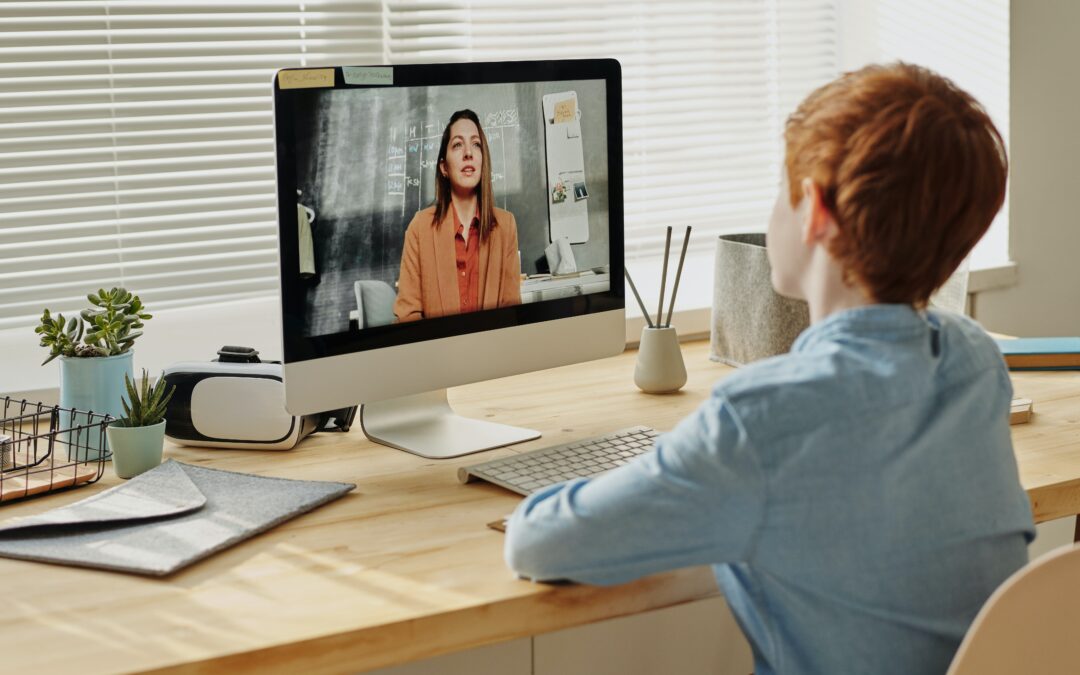The MEA has heard concerns from teachers in some districts that they will be subject to summative evaluations based on their performance while teaching remotely or in hybrid models. MEA believes this would be an inappropriate and ineffective application of the local Professional Evaluation Professional Growth plan. We have begun work with the Maine Department of Education, the Maine Principals’ Association and the Maine School Management Association to develop unified guidance on this topic, but feel it is important to provide initial guidance to our members.
INADEQUATE PREPARATION
Few Maine teachers have been adequately trained in remote or hybrid instruction models and the state has not adopted a set of standards by which to measure performance of educators in those models. Without standards, administrators, lack benchmarks for making decisions about performance that could impact employment decisions as well as the training to employ those standards.
No teachers should be evaluated in their use and any evaluations based on observations of teachers using these models should not be used in making employment decisions. Additionally, evaluators who have not been trained to observe hybrid or remote learning models should not be making summative assessments of a teacher’s performance in them.
THE PURPOSE OF THE LAW AND THE RULE SHOULD GUIDE DECISIONS
The purpose of Chapter 508 of Title 20-A of the Maine Revised Statutes is to support educator professional growth and development with the goal of improving educator effectiveness. Summative evaluations based on a teacher’s performance in remote or blended learning prior to effective training would invalidate the process and hamper professional growth.
Rule Chapter 180 emphasizes formative mentoring by peers and requires its frequent use for new teachers and those on conditional certificates and at least once annually for all educators. MEA believes the current crisis is an opportunity for teachers, administrators, and support staff to collaborate to identify and develop best practices in these models of instruction. An emphasis on formative peer support would meet the letter and spirit of the law, likely resulting in improved student performance.
For the duration of the crisis, we believe summative evaluations should be avoided if possible and no summative evaluation should be based on the observation of teachers in remote or hybrid teaching. Instead, peer observation and support should be emphasized. Conversations with colleagues and supervisors can be very effective in supporting teachers even when no one on staff is an expert in remote or blended learning. Shared or common experiences can help educators develop actionable feedback that can be used to improve the effectiveness of remote and blended learning skills.
REVISING OR ADAPTING THE PEPG SYSTEM
Educators have a great deal of influence over the process through the steering committees that have been set up to create, monitor, review, and revise the local PEPG plan under Rule Chapter 180.
Local associations should urge their steering committees to convene and address the current conditions. PEPG plans should be adapted to address the difficulties faced by both teachers and administrators who are working in unique conditions for which they have not been trained.
MEA believes educators and administrators should work together to determine the best way to support and improve any new models of instruction employed as a necessary response to COVID-19. MEA believes the best response to the current situation is to enhance support for formative peer mentoring.
USE OF STUDENT LEARNING AND GROWTH MEASURES
The use of student learning and growth measures remains a mandatory part of the law until Sept. 1, 2021 but will become optional at that time as a result of legislation supported by the MEA. In the meantime, the MEA strongly suggests deemphasizing the use of student scores, especially standardized test scores, to evaluate educator performance. Many teachers made herculean efforts to provide the best remote instruction possible to their students during the spring of 2020. They continue to do so in hybrid and remote situations today. Still, these modes of teaching are less than ideal and lack the quality of in-person learning. Under these circumstances, student growth data will not provide a valid measure of teacher performance for the purposes of evaluation.
PLACEMENT ON RATING LEVELS AND USE OR IMPROVEMENT PLANS
Decisions to place teachers on action plans or move them to specific rating levels should be based on observations of in-person practice, not performance in hybrid or remote learning models. If teachers are on action plans that are the result of prior performance ratings under normal teaching conditions, they may remain on those plans until conditions allow administrators to do appropriate evaluations of performance. New teachers and those on conditional certificates should receive formative observations and the support of a mentor, as is required by law. In fact, we recommend that all teachers working in remote or hybrid models be provided opportunities for peer support and mentoring.
The MEA will continue to work with DOE, MSMA, and MPA to hopefully reach a joint statement that includes unified guidance from all of the organization.
For more information, please contact MEA Training and Professional Development Director Dan Allen – [email protected] or 622-4418, ext. 2223.




